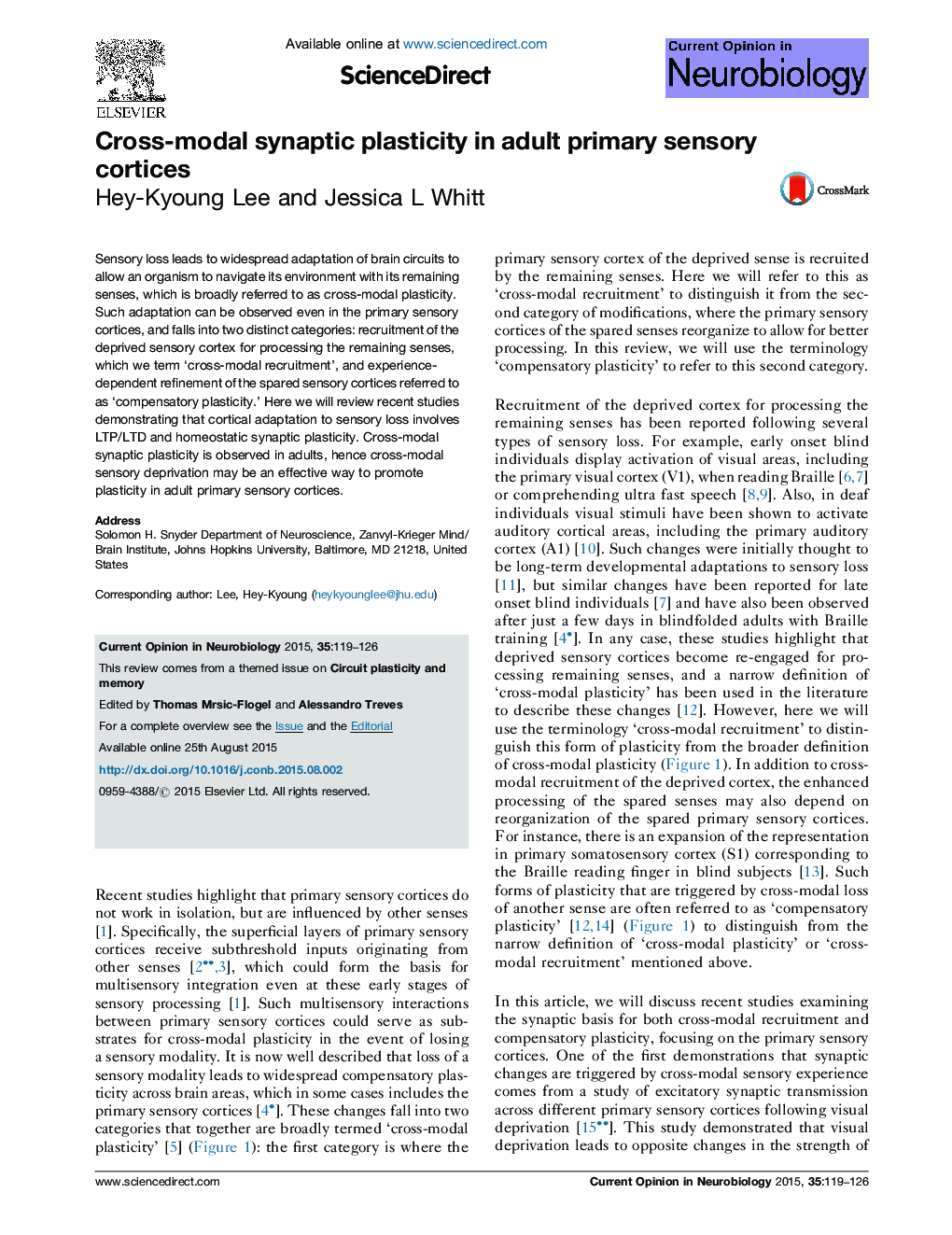| Article ID | Journal | Published Year | Pages | File Type |
|---|---|---|---|---|
| 6266380 | Current Opinion in Neurobiology | 2015 | 8 Pages |
â¢Sensory loss produces cross-modal plasticity across primary sensory cortices.â¢Deprived sensory cortices undergo synaptic plasticity for cross-modal recruitment.â¢Synaptic plasticity in spared sensory cortices conforms to compensatory plasticity.â¢Cross-modal synaptic plasticity is readily observed in adults.
Sensory loss leads to widespread adaptation of brain circuits to allow an organism to navigate its environment with its remaining senses, which is broadly referred to as cross-modal plasticity. Such adaptation can be observed even in the primary sensory cortices, and falls into two distinct categories: recruitment of the deprived sensory cortex for processing the remaining senses, which we term 'cross-modal recruitment', and experience-dependent refinement of the spared sensory cortices referred to as 'compensatory plasticity.' Here we will review recent studies demonstrating that cortical adaptation to sensory loss involves LTP/LTD and homeostatic synaptic plasticity. Cross-modal synaptic plasticity is observed in adults, hence cross-modal sensory deprivation may be an effective way to promote plasticity in adult primary sensory cortices.
